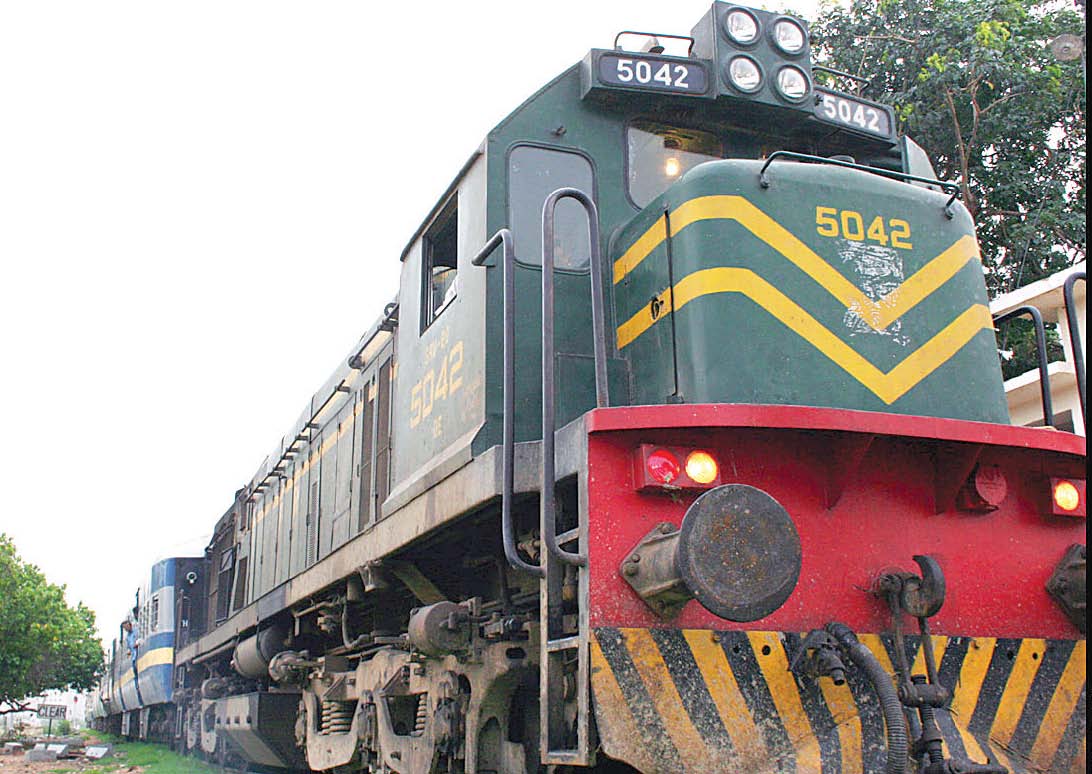Could Regional Conflict Disrupt the Pakistan-Russia Train Route?

Impact of Regional Instability on Pakistan Railways' First Freight Train to Russia
The cancellation of Pakistan Railways' maiden freight train to Russia has raised concerns about the fragility of international trade routes in light of regional conflicts. Initially scheduled to set off from Lahore to Astrakhan on June 22, the journey has been indefinitely postponed due to escalating tensions stemming from the Iran-Israel conflict. This article delves into the implications of this decision, the broader context of trade connectivity initiatives, and the potential for future operations once stability is restored.
The Significance of the Freight Train Initiative
The ambitious project to launch a freight train from Pakistan to Russia represents a pivotal moment for Pakistan Railways (PR) and its strategy for enhancing trade connectivity. This initiative was not merely about transporting goods; it aimed to establish a direct overland trade route connecting South Asia with Central Asia and beyond.
Objectives of the Freight Train Project
- Strengthening Trade Links: The freight train was designed to bolster trade between Pakistan and Russia, as well as neighboring countries like Turkmenistan and Kazakhstan.
- Diversifying Export Markets: With the potential to open new avenues for Pakistani exports, the project aimed to reduce dependency on traditional markets.
- Facilitating Imports: The route was expected to allow the import of goods from Central Asian countries, creating a more balanced trade ecosystem.
Details of the Operation
Initially, the freight train was set to depart with 16 wagons carrying a variety of goods. Plans were in place to gradually increase this capacity, aiming for a fleet of 30 and eventually 50 wagons. This phased approach was intended to scale operations in accordance with demand and logistical capabilities.
Route and Logistics
The proposed route for this freight train was meticulously planned, with transit through Iran, Turkmenistan, and Kazakhstan before reaching its final destination in Russia. This multi-country journey was designed to streamline the movement of goods and enhance trade efficiencies across borders.
Goods in Transit
The cargo was expected to include a diverse array of products, showcasing Pakistan's manufacturing capabilities and export potential. From textiles to agricultural products, the freight train was poised to carry goods that represent the economic diversity of Pakistan.
Challenges Posed by Regional Instability
The ongoing Iran-Israel conflict has introduced significant uncertainties. Railway officials have cited security risks as the primary reason for the indefinite postponement of the freight train's departure. Such instability not only disrupts transportation plans but also jeopardizes the safety of cargo and personnel involved in the logistics chain.
Border Closures: A Major Hurdle
Border closures between Pakistan, Iran, and other transit countries present a formidable challenge. The inability to traverse these borders safely and efficiently means that logistical operations must be re-evaluated. The railway authorities have expressed that the train will only commence its journey once the situation stabilizes, emphasizing the interconnectedness of regional stability and international trade.
Long-Term Implications for Trade Connectivity
The cancellation of this freight train marks a setback for Pakistan Railways' ambitious plans. However, it also highlights the critical need for resilient trade strategies that can withstand geopolitical tensions. The situation serves as a reminder that international trade is often intricately tied to political climates.
Future Prospects
Once the geopolitical situation stabilizes, the potential for the freight train initiative remains significant. Here are some considerations for future operations:
- Enhanced Security Measures: To mitigate risks associated with regional conflicts, PR may need to implement more robust security protocols for the freight train operations.
- Negotiations for Safe Passage: Engaging in diplomatic negotiations may help ensure safe transit through affected regions.
- Expanding Trade Partnerships: Future initiatives could also explore partnerships with other countries to diversify trade routes and reduce reliance on any single corridor.
Conclusion
The postponement of Pakistan Railways' first freight train to Russia due to regional instability is a stark reminder of the complexities involved in international trade. While the immediate future may seem uncertain, the long-term vision for enhanced connectivity and trade opportunities remains a crucial goal. As the geopolitical landscape evolves, so too will the strategies employed to navigate these challenges and seize future opportunities.
FAQs
Why was the freight train from Pakistan to Russia cancelled?
The freight train was cancelled due to regional instability caused by the ongoing Iran-Israel conflict, which resulted in border closures and heightened security risks.
What goods were intended to be transported by the freight train?
The freight train was set to carry a variety of goods, including textiles and agricultural products, showcasing Pakistan's diverse manufacturing capabilities.
What is the potential future of trade connectivity between Pakistan and Russia?
Once the geopolitical situation stabilizes, there is potential for enhanced trade connectivity, including more efficient transport routes and a diverse array of goods exchanged between Pakistan and Russia.
As we reflect on the implications of this setback, one must consider how geopolitical tensions can shape the future of international trade. Will countries adapt and find new pathways to maintain their trade ambitions? Only time will tell. #PakistanRailways #InternationalTrade #GeopoliticalTensions
Published: 2025-06-18 00:33:04 | Category: Uncategorized



